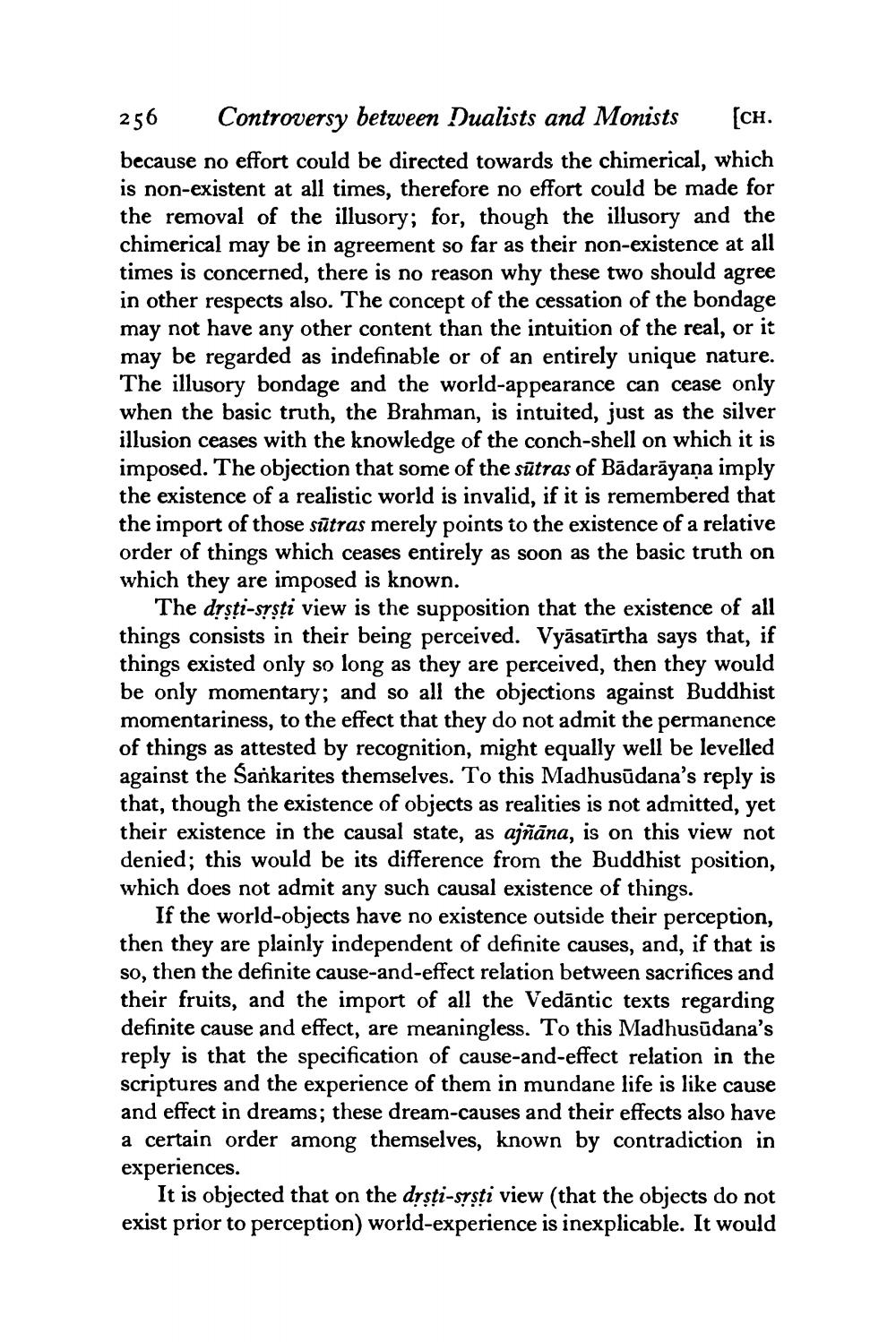________________
256 Controversy between Dualists and Monists (CH. because no effort could be directed towards the chimerical, which is non-existent at all times, therefore no effort could be made for the removal of the illusory; for, though the illusory and the chimerical may be in agreement so far as their non-existence at all times is concerned, there is no reason why these two should agree in other respects also. The concept of the cessation of the bondage may not have any other content than the intuition of the real, or it may be regarded as indefinable or of an entirely unique nature. The illusory bondage and the world-appearance can cease only when the basic truth, the Brahman, is intuited, just as the silver illusion ceases with the knowledge of the conch-shell on which it is imposed. The objection that some of the sūtras of Bädarāyana imply the existence of a realistic world is invalid, if it is remembered that the import of those sūtras merely points to the existence of a relative order of things which ceases entirely as soon as the basic truth on which they are imposed is known.
The drsti-srsti view is the supposition that the existence of all things consists in their being perceived. Vyāsatirtha says that, if things existed only so long as they are perceived, then they would be only momentary; and so all the objections against Buddhist momentariness, to the effect that they do not admit the permanence of things as attested by recognition, might equally well be levelled against the Sankarites themselves. To this Madhusūdana's reply is that, though the existence of objects as realities is not admitted, yet their existence in the causal state, as ajñāna, is on this view not denied; this would be its difference from the Buddhist position, which does not admit any such causal existence of things.
If the world-objects have no existence outside their perception, then they are plainly independent of definite causes, and, if that is so, then the definite cause-and-effect relation between sacrifices and their fruits, and the import of all the Vedāntic texts regarding definite cause and effect, are meaningless. To this Madhusūdana's reply is that the specification of cause-and-effect relation in the scriptures and the experience of them in mundane life is like cause and effect in dreams; these dream-causes and their effects also have a certain order among themselves, known by contradiction in experiences.
It is objected that on the drsți-systi view (that the objects do not exist prior to perception) world-experience is inexplicable. It would




